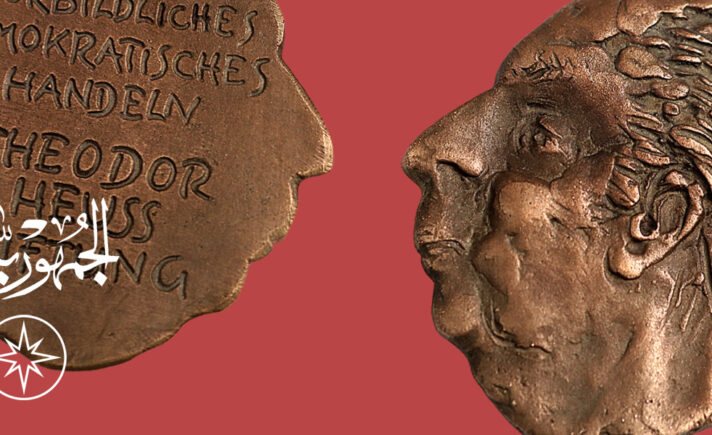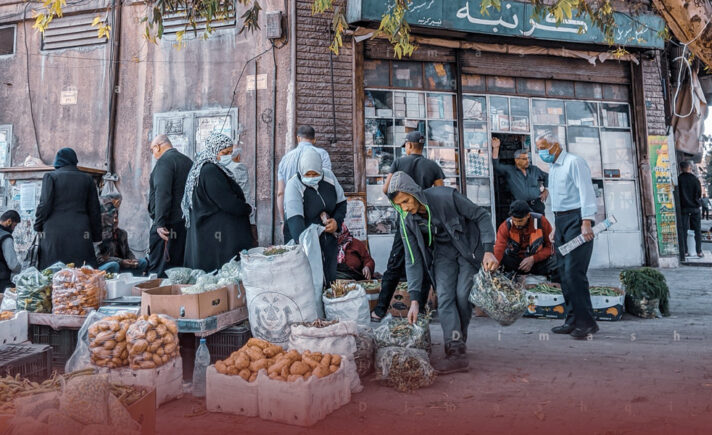“North Syria’s displaced pay to sleep under trees” (26 August, 2019). Over 40,000 displaced Syrians have contracted tropical diseases in just two months, as a result of sleeping in open fields with no clean water or sanitation; just one aspect of the staggering humanitarian crisis attending the largest wave of displacement since Rwanda in the 1990s. For a full English translation of this article, see here.
“Daraya: Waiting at the city entrances” (26 August, 2019). Three years on from the forced evacuation of the city of Daraya, southwest of Damascus, and the displacement of its residents either to the capital’s surrounding provinces or the north of the country, the Assad regime has stated it has begun allowing residents to return to whatever may be left of their homes. As the few returns which have occurred were only permitted after rigorous case-by-case investigations into those applying for them, residents with any kind of prior association with the opposition—a large proportion of Daraya locals—are being systematically kept away, indicating that the step in no way represents any form of page-turning or reconciliation on the regime’s part. For more, see our full report (Arabic).
“Who deserves asylum, and who doesn’t?” (27 August, 2019). In addition to the familiar anti-refugee and anti-immigrant discourse heard from right-of-center parties across Europe, some refugees themselves in countries such as Germany have noticeably begun echoing aspects of the same discourse, criticizing certain groups of fellow refugees, and even calling for their deportation in some cases. For more, including an analysis of the various economic, class-based, socioeconomic, and other factors driving this phenomenon, see the full article (Arabic).
“Yemen’s overlapping wars” (28 August, 2019). The Yemeni city of Aden has been the scene of fierce battles in recent weeks, with the United Arab Emirates-backed “Security Belt Forces” waging a military campaign against the internationally-recognized government led by Abdrabbuh Mansur Hadi, himself supported by Saudi Arabia, the Emirates’ nominal partner in the Arab coalition that has spent years fighting in Yemen against the Iran-supported Houthi militia. The development represents the greatest rift yet to have emerged within this coalition, possibly threatening to bring it down altogether. For more, see our full report (Arabic).
“Bombing escalates after Moscow summit” (28 August, 2019). On Tuesday, Turkey’s President Recep Tayyip Erdoğan met his Russian counterpart Vladimir Putin in Moscow, to discuss various matters including Syria. The meeting followed the loss by Syrian rebels of Northern Hama Province to the Assad regime and its Russian ally. Despite Putin stating after the meeting that the two had agreed to calm the military situation in northern Syria, battles have since continued on the fringes of Idlib as well as Latakia Provinces, suggesting the waters are being tested for further regime advances still—something Turkey presently shows no sign of meaningfully opposing. For more, see our full report (Arabic).
“Disappearances and killings in HTS’ prisons” (29 August, 2019). Al-Jumhuriya speaks to Muhammad al-Salloum, brother of opposition activist Samer al-Salloum, from the Idlib town of Kafranbel, imprisoned and tortured by the jihadist Hay’at Tahrir al-Sham (“Levant Liberation Committee,” or HTS) militia, which is now believed to have killed him, along with some 45 others around the same time. Al-Salloum was one of an estimated 2,000 people to have been arrested by HTS since its initial establishment under the name Jabhat al-Nusra in 2012, many more of whom have also been tortured to death or summarily executed with no semblance of due process or fair trial. For more, see our full report (Arabic).





